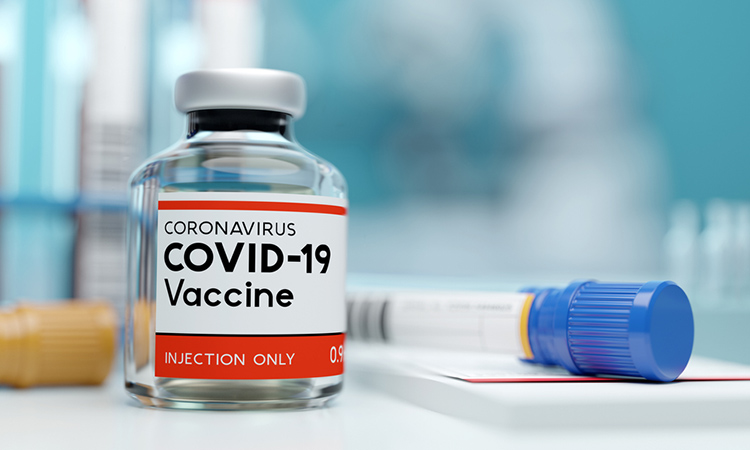The vaccine tourism initiative where foreign nationals come to Zimbabwe to receive their Covid-19 jab for a fee has raised concern as it may lead to the prioritisation of the rich who pay for the service at the expense of citizens who receive the vaccine for free, Zimbabwe Coalition on Debt and Development (ZIMCODD) has said.
Zimbabwe is reportedly seeing a boost in vaccine tourism as foreign nationals come to be vaccinated against Covid-19, for a fee of US$70.
The country authorised the use of four Covid-19 vaccines: China’s Sinopharm and Sinovac vaccines, Russia’s Sputnik V and Covaxin from India although the Chinese vaccines account for the bulk of shots given in Zimbabwe.
With several African countries still facing challenges with slow Covid-19 vaccine rollouts, last month President Emmerson Mnangagwa said: “Zimbabweans will get the vaccine for free, but for foreigners who come here, they will receive the vaccine at a cost. This is a human element, we cannot deny anybody the vaccine, but if you are not Zimbabwean we will give you the vaccine at a cost.”
But ZIMCODD said this initiative was worrying.
“The vaccine touring initiative by the private sector which was approved by the government at the beginning of vaccination in Zimbabwe raises concerns. While we acknowledge the government’s efforts to raise revenue, it remains worrying that at a time when less than five percent of the population has been vaccinated,” said the organisation
“This may lead to prioritisation of the rich thereby widening the already existing inequality gap between the rich and poor.”
Already places like Bulawayo are reportedly facing a shortage of Covid-19 vaccines with residents who went to vaccination centres intending to take their first doses turned back. Only those who are taking their second doses are being attended to.
As of May 20, 615 296 people in Zimbabwe have received their first dose while 252 100 have received both jabs.
ZIMCODD highlighted that an ethical framework should be developed to guide vaccine distribution and prioritisation of the vulnerable should remain key to make sure the available Covid-19 vaccines benefit both rich and poor.
“With private players offering vaccines, it is critical for the government to make sure transparency and accountability in the procurement of Covid-19 vaccines. Not only does this conform to the principles of public finance management and good governance but it is also critical in informing continued decision making about the pandemic to ensure adequate population coverage without exploitation of the people of Zimbabwe,” ZIMCODD said.
ZIMCODD also said it was worrying that some clinics were still reporting a shortage of the vaccination cards.
“The ministry of health has ordered nine million vaccination cards at an undisclosed price which are to be distributed in health facilities. It is anticipated that many countries will require visitors to provide proof of vaccination in order to enter their jurisdiction. As such, the Government’s move to issue specialised electronic Covid-19 vaccination cards with other security features that shall be used for travelling purposes outside the country is commendable,” said the organisation.
“However, it remains worrisome that cases of corruption in the distribution of vaccination cards have also been recorded in previous months.”
While touring Plumtree Border Post last month, Deputy Minister of Health and Child Care, Dr John Mangwiro said they had suspended the vaccination of foreign nationals due to global shortages.
“Let’s be clear, there are foreigners with permanent residencies, those ones are vaccinated but a visitor who says, ‘I am here for three days, I am from Japan and want to proceed to South Africa, vaccinate me.’ No! Are we together? Some of these things you need to be cleared urgently because you are a border town, which we must be updated most of the time,” he said after indicating there was a possibility of receiving many foreigners such as in Victoria Falls wanting to be vaccinated.
Chief Director in the Ministry of Health and Child Care, Dr Maxwell Hove explained although the Treasury had come up with a directive to charge foreigners, unfortunately, due to vaccine shortage, that proposal was suspended.
“That was aggravated by complications of other vaccines -the Johnson and Johnson, AstraZeneca, production has gone down on the international market. Now we have a shortage of those vaccines and high competition for us to get those doses because of that, they suspended the proposal of vaccinating foreigners at a fee,” he said.
“At the moment we don’t vaccinate foreigners. If they come, all the doses are for Zimbabweans and permanent residents here, not for those who are passing by or tourists.”
Dr Hove noted that Zimbabweans with permits from other countries could be vaccinated.
“At international law level, every Zimbabwean who is holding our passport is a Zimbabwean. As a country, we have a responsibility to protect that Zimbabwean wherever they are. So, if they come home to be vaccinated, vaccinate. For every Zimbabwean, we have a responsibility to look after them. If we could vaccinate them wherever they are, we would vaccinate them. That’s our responsibility,” he said.

